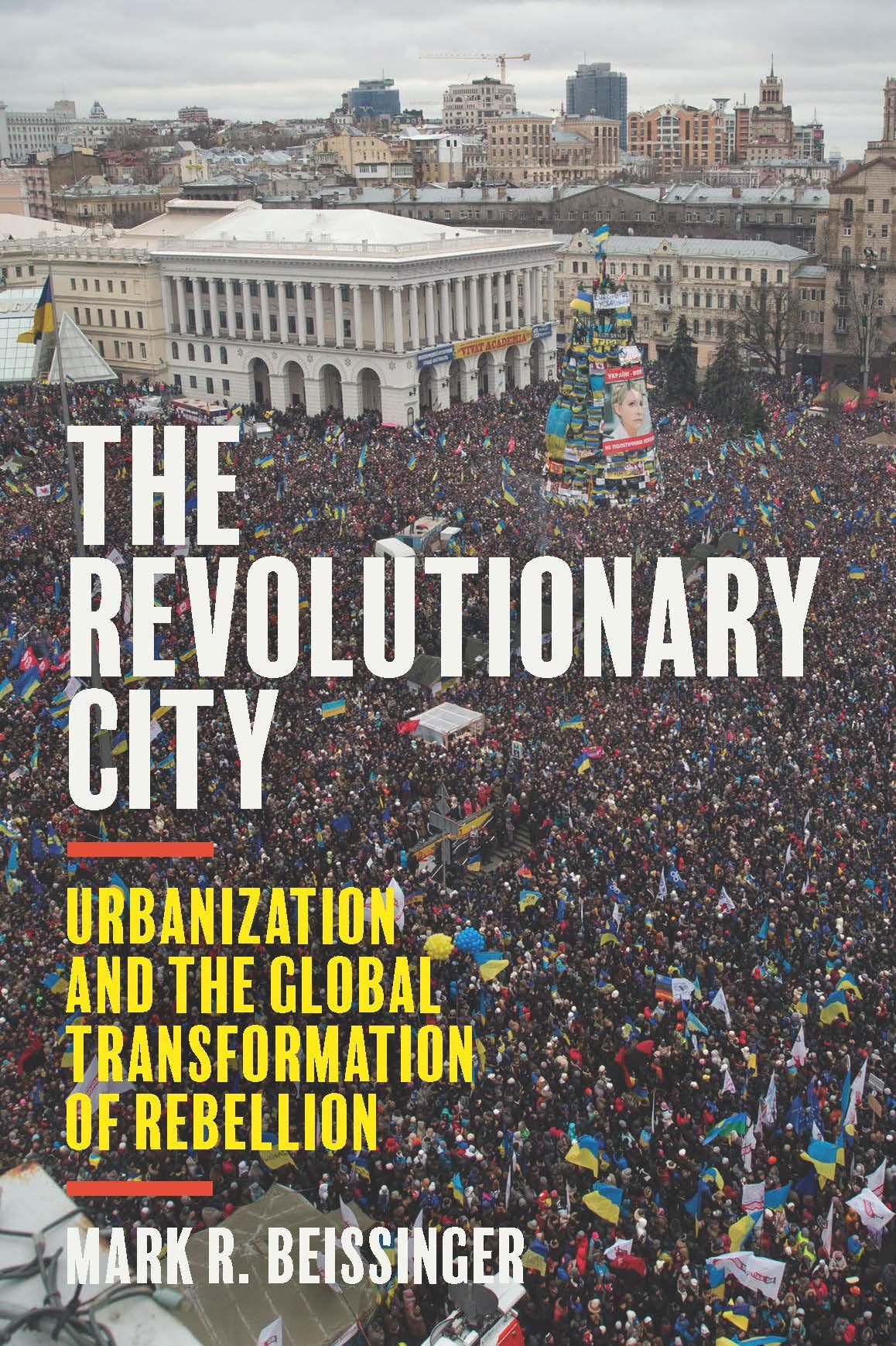The Revolutionary City was selected as co-winner of the 2023 Gregory Luebbert Best Book Award from the Comparative Politics Section of the American Political Science Association for the best book in comparative politics published over the past two years.
Praise for The Revolutionary City:
"perhaps the most important new book on revolution to appear in decades." (Jack Goldstone, Mobilization)
"the single best book I have read on the nature of revolutionary contention today." (Chris Maisano, Jacobin)
"a landmark study that is sure to generate a new wave of scholarship." (Nicholas Lees, Political Quarterly)
"an inspiring model of theoretical, conceptual, and empirical innovation. It takes on a central subject in the study of politics—revolutions—and in one stroke reshapes and will likely reactivate a field of study that has been languishing in political science for several decades." (Luebbert Book Prize Committee)
“a big and wonderfully ambitious book . . . a genuine tour de force that will interest a wide range of readers.” (Jeff Goodwin, Political Science Quarterly)
"a big step in the theory of revolution . . . The Revolutionary City presents theoretical and methodological novelties that will define research of revolutions in the future." (Egor D. Fain and Alisa R. Shishkina, Critical Sociology)
"an impressive achievement both in terms of its scope and in terms of the great ideas and arguments it contains. It is definitely the most comprehensive global study of revolutions to date." (Idlar Lika, Democratization)
"an impressive and important book . . . We are likely to see many elaborations and expansions of his path-breaking study in the future." (Henry Thomson, Perspectives on Politics)
“a very successful global analysis of revolution in the twentieth and twenty-first centuries, one that offers many possibilities for both broader consideration of the phenomenon of revolution and investigations of individual revolutionary situations.” (Jonathan Sperber, Journal of Modern History)
"Beissinger has written a peak career book and joins such giants as Barrington Moore, Charles Tilly, and Theda Skocpol in documenting and analyzing the long cycle of revolutionary politics in modern history and its relationship to different forms of regime and capitalism." (Sidney Tarrow, Contemporary Sociology)
For more information on the "Revolutionary Episodes Dataset" on which the book is based, go to the "Datasets" section of this website.
SYNOPSIS OF THE BOOK:
The Revolutionary City: Urbanization and the Global Transformation of Rebellion (Princeton University Press, 2022).
The Revolutionary City lays out a theory about how spatial location influences revolutionary processes, outlining a repression-disruption tradeoff in revolution that is associated with proximity to government nerve centers of power. This tradeoff not only helps to understand the starkly different nature of urban and rural revolutionary processes. It also provides a framework for explaining why the locations of revolutionary challenges have shifted over time and how the concentration of people, power, and wealth in cities has altered the character and outcomes of urban revolutionary contention. Over the past century revolutionary contention has grown increasingly frequent, urban, and successful. Much of this has to do with the ways in which urbanization has given rise to new repertoires of revolutionary contention in cities based on the power of numbers rather than the power of arms. The book documents and explains this transformation and explores its consequences, bringing a number of novel sources and approaches to the study of revolution. It utilizes an original dataset of 345 revolutionary episodes from 1900 to 2014 to examine how and why the character of revolution has changed over time. It examines a series of unusual nationally-representative public opinion surveys probing individual-level participation in four revolutions representing the new urban civic repertoire that has grown increasingly common around the world. And it uses case material and qualitative evidence from around the world to illustrate patterns and trends, unpack the dynamic processes occurring within revolutionary episodes, and probe the spatial politics that lies at the heart of urban revolutionary contention. Finally, the book compares patterns of political order, economic growth, inequality, political freedoms, and government accountability after revolutions, showing how and why contemporary urban revolutions have produced outcomes that are more ambiguous and uncertain than revolutions in the past.
Click here to purchase The Revolutionary City.
- Citation for Luebbert Award
- Book review by Jack Goldstone, in Mobilization (December 2022)
- Book review by Sidney Tarrow, in Contemporary Sociology 52, 3 (2023)
- RevDem podcast on The Revolutionary City, April 8, 2022
- Democracy Paradox podcast on The Revolutionary City, April 12, 2022
- PIIRS Director's Book Forum on The Revolutionary City, April 13, 2022
- Public lecture on The Revolutionary City, Weiser Center for Emerging Democracies, University of Michigan, April 19, 2022
- Public lecture on The Revolutionary City, Wissenschaftszentrum Berlin für Sozialforschung (WZB), Berlin, April 27, 2022


